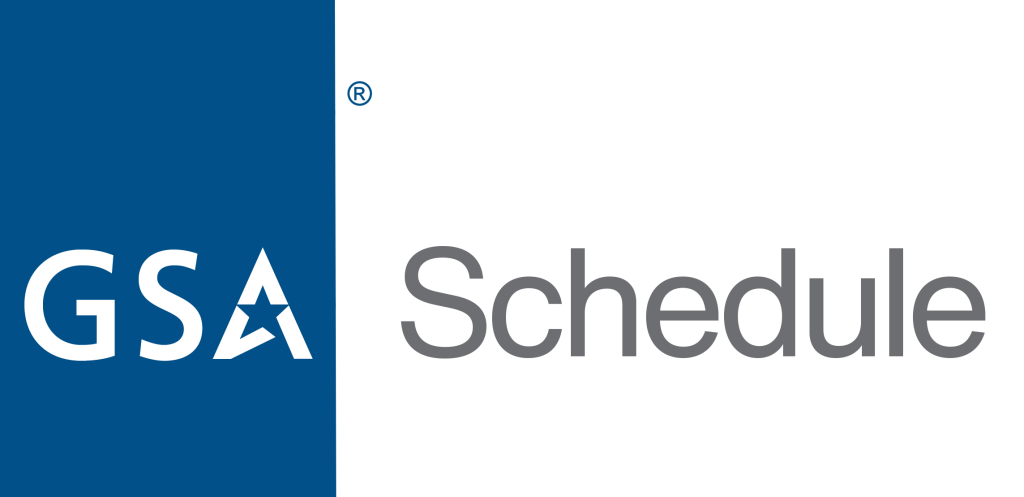In the complex and ever-evolving landscape of government procurement, General Services Administration (GSA) Schedules stand out as a pivotal mechanism for both government agencies and private sector vendors. Essentially, the GSA Schedule, also known as the Federal Supply Schedule, is a long-term governmentwide contract with commercial firms that provides access to millions of commercial products and services at fair and reasonable prices to the government. The schedule is instrumental in streamlining the buying process for federal, state, and local government agencies, enabling them to acquire a vast array of goods and services efficiently and effectively.
- Comprehensive Overview of GSA Schedule Categories
- Purpose and Operation
- Benefits for Government Agencies
- Benefits for Vendors
- Detailed Breakdown of GSA Multiple Award Schedule (MAS) Categories
- Information Technology Category
- Professional Services Category
- Security and Protection Category
- Facilities and Construction Category
- Office Management Category
- In-Depth Analysis of GSA IT Category
- Importance and Scope
- Obtaining a GSA Multiple Award Schedule
- Steps to Become a GSA MAS Schedule Vendor
- Conclusion
The importance of the GSA Schedule cannot be overstated. For government agencies, it offers a simplified and cost-effective procurement route, ensuring that the products and services acquired meet stringent quality standards. This efficiency is crucial in a public sector environment where both accountability and fiscal prudence are paramount. On the flip side, for vendors, being on a GSA Schedule opens up a significant market opportunity. The federal government is the largest single purchaser of goods and services in the world, with GSA Schedule sales exceeding $45 billion annually. This presents an invaluable avenue for businesses of all sizes to expand their reach and contribute to the public sector.
However, the dynamic nature of market demands, coupled with evolving regulations and technological advancements, necessitates regular updates and expansions to the information surrounding GSA Schedules. The landscape of government procurement is not static; new challenges, solutions, and efficiencies emerge, requiring a current and thorough understanding of the GSA Schedule. This need for up-to-date information is critical not only for new vendors aiming to navigate the complexities of entering the government marketplace but also for seasoned suppliers looking to maintain and expand their foothold in this lucrative sector.
As the federal procurement landscape continues to evolve, so too does the structure and application of GSA Schedules. Staying abreast of these changes is essential for all stakeholders involved, ensuring they can leverage the full potential of GSA Schedules to meet their needs. This article aims to delve into the intricacies of the GSA Schedule, providing a comprehensive overview of categories, and the strategic advantages they offer, all the while highlighting the importance of continuous learning and adaptation in this dynamic procurement environment.
Comprehensive Overview of GSA Schedule Categories
GSA Multiple Award Schedule, a cornerstone of federal procurement, serves as a bridge between government agencies seeking to acquire goods and services and the vendors that supply them. This schedule is essentially a pre-negotiated contract, that lists prices for over a million products and services, from office supplies to IT equipment, consulting services, and beyond. Managed by the General Services Administration, Multiple Award Schedule (MAS) streamlines the procurement process, making it easier, faster, and more cost-effective for federal agencies to get what they need.
Purpose and Operation
The primary purpose of the GSA Schedule is to simplify the government procurement process. Before the existence of the GSA MAS Schedule, government agencies had to individually negotiate terms and prices for every purchase, a time-consuming and often costly affair. GSA Schedule transformed this process by establishing long-term, IDIQ (Indefinite Delivery, Indefinite Quantity) government-wide contracts with commercial companies. This means that prices, terms, and conditions are all pre-negotiated and vetted for fairness and reasonableness, ensuring compliance with all federal acquisition regulations.
Operating under the premise of “buying once, using many,” the GSA Schedule offers an array of benefits. For agencies, they provide direct access to products and services at volume discount pricing without the need for separate contract negotiations for each purchase. For vendors, being on a GSA Schedule signifies that they have been pre-approved to sell to any government agency, significantly reducing the barrier to entry into the federal market.
Benefits for Government Agencies
For government agencies, the benefits of using the GSA Schedule are manifold:
- Streamlined Procurement: Agencies can quickly find and purchase products and services, saving valuable time and resources.
- Compliance Assurance: All offerings on the GSA Schedule are pre-vetted for compliance with federal regulations, reducing risk and ensuring trustworthiness.
- Cost Savings: Competitive pricing and the ability to seek further discounts ensure that agencies can make the most of their budgets.
- Flexibility and Variety: With access to a wide range of suppliers and offerings, agencies can tailor purchases to their specific needs.
Benefits for Vendors
Vendors, from small businesses to large corporations, also reap significant benefits:
- Access to the Federal Market: The GSA Schedule provides an invaluable channel for selling directly to government agencies, bypassing many of the complexities of government procurement.
- Reduced Sales Cycle: Being pre-vetted and listed on a GSA Schedule reduces the sales cycle, allowing for quicker transactions.
- Market Exposure: Products and services are exposed to a wide audience of government buyers, increasing the potential for sales generation.
- Long-term Contracts: GSA MAS contracts can last up to 20 years (a 5-year base period with three 5-year options), providing long-term stability for vendors.
The efficiency and accessibility of GSA Schedule make them a vital tool in the procurement toolkit for both government agencies and vendors. By facilitating easier access to a broad marketplace, the GSA Schedule not only streamlines the procurement process but also ensures that government agencies can procure the goods and services they need to serve the public effectively. For vendors, the schedule offers a direct path to the vast and continually expanding government marketplace, promising opportunities for growth and long-term partnerships.
Detailed Breakdown of GSA Multiple Award Schedule (MAS) Categories
The General Services Administration (GSA) organizes its myriad of offerings into distinct categories, known as Special Item Numbers (SINs), each designed to cater to specific needs and markets. These SINs cover a broad spectrum of products and services, ensuring that government agencies can find virtually everything they need under this procurement umbrella. Here, we provide a closer look at some of the key GSA MAS categories, highlighting the diversity and scope of options available to federal buyers.
Information Technology Category
One of the largest and most utilized, GSA IT categories, addresses the vast and varied needs of the government in the digital field. It offers a comprehensive array of IT products, services, and solutions, including:
- Hardware: Computers, servers, networking equipment, and storage solutions.
- Software: Enterprise applications, operating systems, and security software.
- Services: Cloud computing, cybersecurity, data analytics, and IT consulting.
This category is pivotal for agencies aiming to enhance their IT infrastructures, improve cybersecurity measures, and embrace digital transformation.
Professional Services Category
The professional services category provides a broad selection of expert advice and assistance in areas such as:
- Engineering Services: Including aerospace, chemical, electrical, and mechanical engineering.
- Environmental Services: Consulting on environmental management and compliance, including GIS mapping and analysis.
- Financial and Business Solutions: Accounting, budgeting, and financial management services.
- Management and Consulting Services: Strategic planning, project management, and marketing consulting.
This category supports agencies in accessing specialized expertise and consulting services to optimize operations and achieve strategic goals.
Security and Protection Category
Ensuring the safety and security of government facilities and personnel, this specific category offers:
- Law Enforcement and Security Equipment: Body armor, firefighting equipment, and security cameras.
- Professional Security Services: Risk assessments, facility management, and guard services.
- Marine Craft and Equipment: Patrol boats, diving equipment, and marine safety products.
This category aids in protecting public assets and ensuring the safety of government operations.
Facilities and Construction Category
Supporting infrastructure needs, this category includes:
- Construction and Building Materials: Flooring, roofing materials, and prefabricated buildings.
- Facilities Maintenance and Management: HVAC maintenance, landscaping services, and energy management solutions.
- Environmental Services: Waste management, environmental consulting, and remediation services.
Agencies can get assistance in managing, maintaining, and upgrading physical assets and infrastructure.
Office Management Category:
Designed to support the everyday operations of government offices, the office management category includes:
- Office Supplies and Equipment: Printers, copiers, and office furnishings.
- Document Management Services: Shredding, document conversion, and mailing solutions.
- Photographic Equipment: Cameras, photographic supplies, and imaging services.
This category ensures that government offices are well-equipped and functional, supporting the administrative backbone of public service.
Each GSA category is curated to meet the specific needs of government agencies, streamlining the procurement process and ensuring access to high-quality products and services. The categories are periodically reviewed and updated to align with emerging needs and technological advancements, ensuring the federal government remains agile and responsive in its operations.
In-Depth Analysis of GSA IT Category
The GSA IT category, offering Information Technology Equipment, Software, and Services, is a testament to the critical role that technology plays in modern government operations. This category is a key vehicle through which federal, state, and local agencies acquire innovative IT solutions, from cloud services to cybersecurity.
Importance and Scope
Providing IT services and products is pivotal in enabling government agencies to adopt and implement cutting-edge technology solutions that drive efficiency, enhance security, and foster innovation. It covers a broad spectrum of IT needs, including but not limited to:
- Cloud and Virtualization Services: Offering scalable, on-demand computing resources.
- Cybersecurity Solutions: Providing tools and consulting to protect government data and infrastructure from cyber threats.
- Software and Applications: Encompassing enterprise applications, development tools, and business solutions.
- Hardware and Infrastructure: Including servers, storage, network equipment, and peripherals.
- Telecommunications and Wireless Services: Supporting government communication needs with the latest in telecom technology.
Obtaining a GSA Multiple Award Schedule
The process for vendors to obtain a GSA Multiple Award Schedule and specialize in the IT category involves several steps, designed to ensure that only reputable and capable providers are granted the opportunity to serve government customers. Recent changes and updates have streamlined this process, making it more transparent and accessible. Key steps include:
- Preparation: Vendors must gather all necessary documentation, including financial statements, commercial price lists, and past performance references.
- Registration: Companies must register in the System for Award Management (SAM) and obtain a Unique Entity Identifier (UEI) number.
- Proposal Submission: Submit a comprehensive proposal through the eOffer system, detailing products, services, pricing, and compliance with terms and conditions.
- Review and Negotiation: GSA will review the submission, possibly requesting additional information or clarifications, followed by negotiations on prices and terms.
- Award: Successful vendors are awarded a contract, which can last up to 20 years with renewals.
The Startup Springboard program is now available for IT companies that don’t meet the typical requirements of the GSA/MAS Schedule. This exciting initiative offers a unique pathway for businesses to enter the government contracting arena, providing them with the opportunity to participate in federal projects and initiatives.
Steps to Become a GSA MAS Schedule Vendor
Becoming a GSA Schedule vendor opens a doorway to significant government contracting opportunities. The process, while straightforward, requires careful preparation and attention to detail. Here’s a step-by-step guide to navigating the path to becoming a GSA Schedule vendor, along with the latest requirements and tips to avoid common pitfalls.
1. Research and Select the Appropriate Schedule
- Initial Assessment: Determine if your products or services align with the offerings covered by a GSA Schedule. Review the GSA eLibrary to identify which Special Item Number (SIN)fits your business and category.
- Market Analysis: Conduct market research to understand the demand for your offerings within the government and identify your potential competitors within your segment.
2. Ensure Your Business is Eligible
- Basic Requirements: Confirm that your business meets the basic requirements to apply for a GSA Schedule, including being in business for at least two years and financial stability.
- Registrations: Register in the System for Award Management (SAM) and obtain a Unique Entity Identifier (UEI) number.
3. Prepare Your Offer
- Documentation: Gather all necessary documentation, including your commercial pricelist, Past Performance Evaluation reports, and any relevant certifications.
- Pricing Strategy: Develop a pricing strategy that is competitive yet sustainable. Ensure your offered prices to GSA are as favorable or better than your best customer pricing.
- Technical Proposal: Prepare a detailed technical proposal that demonstrates your capabilities and experience, aligning with the specific requirements of the GSA Schedule.
4. Submit Your Offer
- eOffer: Use the GSA’s eOffer system to submit your proposal electronically. This system streamlines the submission process and allows for easier communication with GSA.
5. Review and Negotiation
- GSA Review: A GSA contracting officer will review your submission. Be prepared to provide additional information or clarification as requested.
- Negotiations: The GSA may negotiate your proposed pricing or terms. Be ready to justify your pricing and demonstrate how your offerings provide value.
6. Contract Award
- Upon successful negotiation, you will be awarded a GSA Schedule contract. This contract can potentially extend up to 20 years, through a five-year base period with three five-year option periods.
Latest Requirements and Avoiding Pitfalls
- Current, up-to-date SAM.gov registration
- Compliance: Familiarize yourself with the Trade Agreements Act (TAA) and ensure all offered products are TAA compliant. Offering non-compliant products is a frequent pitfall.
- Economic Price Adjustments (EPA): Understand the rules around EPA requests to adjust your prices in line with inflation or market fluctuations.
- Past Performance: Lack of adequate past performance documentation can stall your application. Collect and present comprehensive evidence of your success in delivering similar products or services.
Becoming a GSA Schedule vendor is a significant commitment but also a substantial opportunity. The key to a successful application is thorough preparation, understanding the requirements, and strategic pricing. Avoiding common pitfalls such as overlooking the importance of TAA compliance, underestimating the documentation required, or failing to present a competitive and justified pricing strategy will increase your chances of securing a GSA Schedule contract and unlocking the vast potential of the government marketplace.
Conclusion
The General Services Administration (GSA) Schedules play an indispensable role in the ecosystem of government procurement, offering a streamlined, efficient pathway for government agencies to acquire the goods and services they require. For suppliers, being part of a GSA Schedule opens the door to a vast market, providing unparalleled access to government contracts that might otherwise be out of reach due to the complexity and competitiveness of the procurement and fulfillment processes.
The importance of GSA Schedule in facilitating government procurement cannot be overstated. They not only ensure that government agencies have access to a wide array of products and services at competitive prices but also uphold standards of quality and compliance, ensuring that taxpayer dollars are spent wisely and effectively. For suppliers, the GSA Schedule represents a significant opportunity to grow the business, gain credibility, and establish long-term relationships within the government sector.
Moreover, the digital transformation of procurement processes, emphasized by platforms like GSA Advantage!® and eBuy, is likely to continue, deeming these procedures even more accessible and efficient for both buyers and sellers. The increasing emphasis on sustainability and social responsibility may also influence the criteria for GSA Schedule inclusion, reflecting broader government priorities.
The “Best-In-Class” (BIC) designation, highlighting the most efficient and cost-effective procurement solutions, is expected to play an even greater role in guiding government purchasing decisions. This focus on excellence and value will drive vendors to continually improve their offerings and operations to meet the high standards required for BIC recognition.
In conclusion, the GSA schedule is a cornerstone of government procurement, embodying a partnership between the public and private sectors that is essential for delivering the goods and services that government agencies need to serve the public. As we look to the future, the evolution of the GSA Schedule will undoubtedly reflect and accommodate the changing landscape of government procurement, driving innovation, efficiency, and overall value for both government agencies and suppliers alike.








